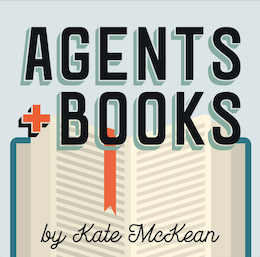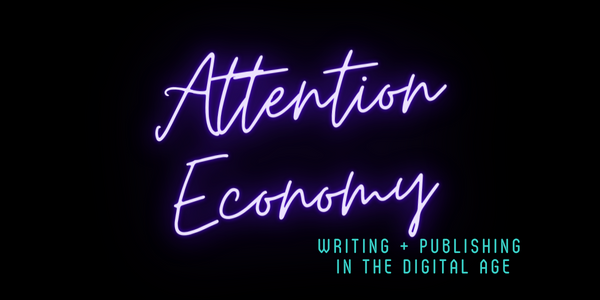For writers at every stage, the publishing industry can feel inaccessible. There are so many steps between drafting a book and seeing it out in the world. Especially for debut hopefuls, it’s more than a little intimidating: how do we know what we don’t know? Meanwhile, those who’ve already published may have different unknowns related to their brand, potential advances, or editor relationships from one book to the next. Luckily, the resurgence of the email newsletter over the past couple of years has led agents, publishers, and writers with publishing experience to lift the veil on much of the process.
The seven newsletters below offer the best insights and advice from abstract aspects of publishing to the smallest details, including market analysis, writing query emails and proposals, navigating contracts, marketing your work—and don’t forget much-needed emotional support and a laugh or two.
Agents & Books by Kate McKean
A writer and vice president at the Howard Morhaim Literary Agency with bylines in Catapult, Electric Literature, and Racked, Kate McKean created Agents & Books to answer the most common questions she gets about writing, literary agents, and publishing. How to find and research agents, writing query letters and book proposals, contracts, publicity, and how to quit your job and write full time are all areas McKean dives into. There is free content, but for $5/month or $50/year, paid subscribers receive an additional weekly newsletter with Q&As they can submit questions to, along with insider content. Best of all, it’s easy to find the information you need on the newsletter’s home page, which is organized by topic.
Attention Economy by Leigh Stein
Every Sunday, Leigh Stein sends out a completely free and extremely personable newsletter about how the internet is changing the way books are written and published. The author of five books, most recently the poetry collection What To Miss When, Stein gets writers to think beyond what they’re working on and instead about how they’re working on it. The newsletter demystifies the industry and process of getting published as it covers topics like the importance of having a strong concept to get a book deal, thinking of your writing career as a small business, platform building and marketing your own work, the shifting nature of the personal essay market due to social media, and trends in book title writing. She also includes writing exercises when relevant, gets into craft, and provides personal examples to make sure her points resonate.
The Hot Sheet by Jane Friedman
Hailed as “The Economist of publishing but a lot easier to read,” Jane Friedman’s The Hot Sheet is for anyone who wants to keep up with the business realities of the publishing industry. The former publisher of Writer’s Digest and author of three books including The Business of Being a Writer, Friedman shares her sharp interpretation of launches and mergers, changes likely to affect author earnings, market analysis, and more in a variety of forms: top headlines of the latest news in publishing, in-depth articles with bottom-line takeaways, a summary of industry trends, new opportunities and ventures, and links to stories of interest in the writing and publishing community. There are no free subscription options here. For $59/year, subscribers receive an email every two weeks with relevant information that just might lead them to find their next publishing opportunity.
Before and After the Book Deal by Courtney Maum
Writer and book coach Courtney Maum is dedicated to giving her peers the tools they need to feel empowered when working to publish a book. Her newsletter—a continuation of Before and After The Book Deal, one of her five books—offers insight into all aspects of the publishing industry, as well as craft and publishing tips, for debut authors and veterans alike. With a direct but light-hearted delivery (ex: “Don’t write every day. Yep. You heard me”), Maum tackles details like blurb writing etiquette and query email subject lines alongside bigger picture items such as how to get out of your own way and deciding to self-publish. There are occasional free posts, but in addition to weekly, sometimes twice weekly emails, paid subscribers ($6/month or $60/year) can post, comment, and submit their promotional materials to Maum’s “Friday Office Hours” for a shared critique.
How to Glow in the Dark by Anna Sproul-Latimer
How to Glow in the Dark offers practical, candid, and entertaining advice to writers at every stage of their journey—“aspiring, #amwriting, querying, submitting, under contract, post-publication, popping champagne, popping Xanax, screaming into a pillow.” Most emails are written by Anna Sproul-Latimer with occasional contributions from her colleagues at Neon Literary, where she’s founding partner and president. This newsletter feels like a friend who helps you see all sides of a situation. Sproul-Latimer covers everything from the nitty gritty of profit and loss sheets to how writers can approach editors who don’t respond with timely edits to why neurodivergent writers shouldn’t ritualize their creativity but rather “make tedium a daily practice and your dreams an emergency.” Periodically, there are public posts for non-subscribers, but for $5.99/month or $49.99/year, subscribers receive weekly emails with publishing tips, as well as access to the newsletter archive.
Publishing is Hard by DongWon Song
Publishing is Hard is its own work of art in newsletter form. Its creator, DongWon Song, an agent at Howard Morhaim Literary Agency, began this (approximately) monthly venture to “share what it’s like, emotionally, to sit on my side of the table, and to try to shine a light on some of the business’s more confusing corners.” Song’s newsletter is emotional indeed—raw, authentic, humorous, and hopeful. At times, it’s philosophical, such as when Song describes their existence at the intersection of art and capitalism, and encourages us to write despite uncertainty. Other times, it’s practical, making a case for why writers should think about their brand long before commercial success, or breaking down the opening paragraph of Shirley Jackson’s The Haunting of Hill House. Song’s newsletter is free, but for $5/month or $50/year, subscribers receive bonus content like monthly Q&A streams with guests.
Notes from a Small Press by Anne Trubek
In Notes from a Small Press, Anne Trubek—founder and publisher of Belt Publishing and author of three books including So You Want to Publish a Book?—shares her take on an array of publishing industry-related topics. Each week she tackles something new, from defining what makes a small press small to summarizing the “most disastrous decision in corporate publishing history” to covering common misconceptions about publishing. The newsletter is free, but only paid subscribers ($5/month or $30/year) can see posts from the archives.







